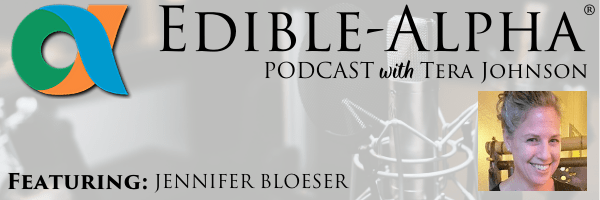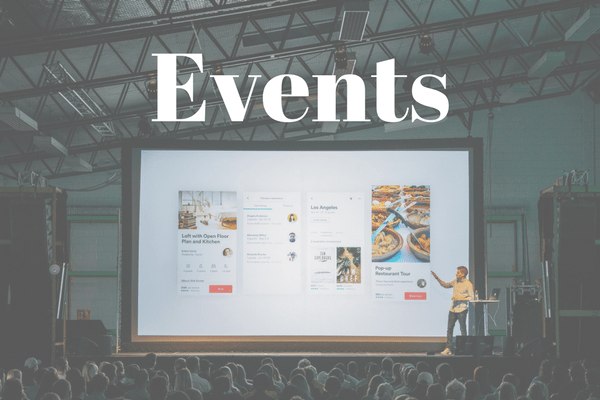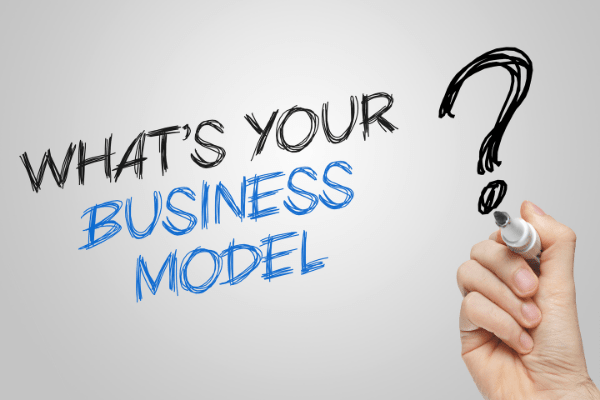Can your food or farm business succeed? It sure can. But it could also be a total flop. And it’s not the products you’re selling that will seal your company’s fate.
At FFI, we work with a vast array of food and farm businesses, from early-stage startups to larger enterprises, that offer all kinds of amazing products. Some of their offerings are very unique or niche, like Oregon Coast Wasabi, featured on the latest Edible-Alpha® podcast, while others operate in more crowded categories. But no matter a company’s stage, scope or market, there’s one hard-and-fast rule that we always hammer home: It’s a business model, not a product, that determines whether or not a food or beverage company makes money.
This rule sometimes surprises new entrepreneurs. It may even scare them too. After all, most food and agriculture entrepreneurs go into business primarily because they’re passionate about their product, know it inside and out, and want to share it with the world—not because they like number crunching and spreadsheets.
But as we work with clients, we show them that a solid business plan doesn’t need to be complex, and the process of crafting it doesn’t have to be overwhelming. In fact, the whole shebang can be mapped out on a single page. Sure, writing up a long, detailed business plan can be useful. But distilling everything down into one page is typically a much more impactful (and quicker!) exercise. It helps entrepreneurs focus their ideas, tease out the most important stuff and then be able to communicate their plan to others.
That is why, whenever FFI works with a new client, we always start with the same homework assignment: We ask them to fill out something called a lean business model canvas. This simple template, specially tailored to lean startups, features nine cells representing key aspects of a business model.
Here they are, in no particular order:
- Customer segments. Who is your target audience? Who are you trying to reach with your products?
- Problem. Putting yourself in your customers’ shoes, what is the primary problem(s) they face and that your product or service can solve? What are their existing alternatives?
- Solution. What are the top features of your product that enable it to solve your customers’ problem?
- Channels. Which channels will best allow you to reach your target customers?
- Unique value proposition. In a clear, concise statement, what unique benefits does your product offer to your target customers in regard to the problem you’re aiming to solve? How does your value differ from what another company can deliver?
- Revenue streams. What sources of income will keep the business running?
- Cost structure. What are the costs of doing business, including sourcing, distribution, customer acquisition, etc.?
- Key metrics. Which data points best illustrate how well your company is performing? Which will help you identify areas of improvement?
- Unfair advantage. Also called competitive advantage, what makes your business stand out? What assets do you have that your competitors can’t easily access?
Once a client fills out the nine blocks, the complete canvas provides a snapshot of a company. This gives the entrepreneur a clearer picture of what they’re working with and helps us determine, together, which areas need the most refining. Plus, the canvas can always serve as a reference point and cornerstone of future business decisions.
FFI is always happy to help entrepreneurs navigate this pivotal exercise, so please reach out!

Jennifer Bloeser fell in love with wasabi years ago, so she figured out how to grow it at scale and sell it to restaurants, grocers, distributors and consumers online. Now 11 years in, Oregon Coast Wasabi is expanding operations as it continues to dominate this niche market. Catch the latest podcast to hear Jennifer discuss this versatile culinary and medicinal plant, as well as her business model, financing strategy and plans for the future.
And now, our roundup of the best food and beverage finance news, events and resources from around the web…
Business Model Insights
- They create jobs, open farmers’ markets, and make local food resilient, just, and equitable. Chances are, you’ve never heard of them (The Counter)
Everybody’s talking about food systems, but there are people whose job it is to develop them. What do they do? - 3 things to gear up for fourth-quarter financials (New Hope Network)
- What to do if your business is slow to rebound (New Hope Network)
Raising Capital
- Why should we invest in you? (The Intertwine Group)
When preventing to investors, founders typically talk up their products, the market, their use of funds—all important stuff. But they fail to make the case for why they represent the very best investment option. - For Startups, It Pays to Partner with a High-Quality VC, Even If You Give Up Some Equity (Entrepreneur)
- He says it’s not about climate. So why is Bill Gates investing in farmland? (AgFunder News)
CPG/National Brands
- Upcycled ingredients: Where better-for-you meets better-for-the-planet (Food & Beverage Insider)
A recent survey revealed 76% of consumers would be ‘willing’ or ‘absolutely willing’ to try food made with upcycled ingredients they had a lower environmental impact. - CPG manufacturers face ‘labor crisis’ amid supply chain pressures, report says (Food Dive)
- Is This Food Really Healthy? New Packaging Labels Would Tell You (Scientific American)

Market Trends
- How do consumers think about sustainability when buying groceries? (FoodNavigator-USA)
The climatarian diet may be niche now, but it’s gaining traction fast Experts predict consumers will be prioritizing environmental sustainability right alongside taste and nutrition within the next 10 years. - Increased use of online grocery shopping ‘here to stay’ (Supermarket News)
- Frozen food continues to win as regions re-open, but what consumers reach for is evolving, IRI finds (FoodNavigator-USA)

Farming and AgTech
- A program that pays farmers not to farm isn’t saving the planet (Politico)
A decades-old program that pays farmers to leave land fallow is being heralded by the Biden administration as a climate solution, but environmentalists don’t see it that way. - Highest farm income in eight years, but one-third comes from government (Successful Farming)
- For dairy cows, where there’s smoke, there’s less milk (The Counter)
Deals/M&A
- Top food and beverage transactions for the first half of 2021 (New Hope Network)
Nutrition Capital Network has already tracked 641 deals in 2021, compared to 482 in 2020, putting the industry on pace for a 22% jump in total transactions by year end. - Iowa start-up FarmlandFinder acquired by EasyKnock (Successful Farming)
- Food & beverage industry: Mid-year review and M&A outlook (The Food Institute)

Industry Events
Virtual events:
- The Power of Food: Cultivating Equitable Policy Through Collective Action: 9/20–9/22
- Natural Products Expo East Virtual Extension: 9/22–9/25
- FoodNavigator Climate Smart Food Digital Summit: 9/27–9/30
- Edible-Alpha® Immersion Training: Building a Brand that Stands Out with Katie Mleziva: 9/28–9/30
- Food and Beverage 2021 Global Symposium: 10/5
- Food Safety Consortium Virtual Conference Series: Thursdays 10/7–11/4
- National Organic Standards Board Fall Meeting: 10/13–10/21
- Food & Nutrition Conference & Expo: 10/16–10/19
- FFI Raising Equity Workshop: 10/18–10/22
- American Food Manufacturing Summit: 11/16–11/18
In-person events:
- Food Automation and Manufacturing Conference and Expo: 9/12–9/15 in Miami, FL
- Organic Produce Summit: 9/15–9/16 in Monterey, CA
- International Baking Industry Exposition: 9/17–9/21 in Las Vegas, NV
- Americas Food & Beverage Show: 9/22–9/23 in Miami Beach, FL
- Petfood Forum: 9/22–9/24 in Kansas City, MO
- Natural Products Expo East: 9/22–9/25 in Philadelphia, PA
- Fancy Food Show 2021: 9/27–9/29 in New York, NY
- World Dairy Expo: 9/28–10/2 in Madison, WI
- Northeast Organic Dairy Producers Alliance Field Days: 9/30–10/1 in Freeport, ME
- Land Stewardship Project Just Food & Farm System Harvest Festival: 10/2 in Jordan, MN
- SupplySide West/Food ingredients North America: 10/25–10/28 in Las Vegas, NV
- Soil Health Academy: Transitional Regenerative Dairying: 10/26–10/28 in Loganton, PA
- IBIEducate 2021: 10/26–10/28 in Kansas City, MO
- PMA Fresh Summit: 10/28–10/30 in New Orleans, LA




